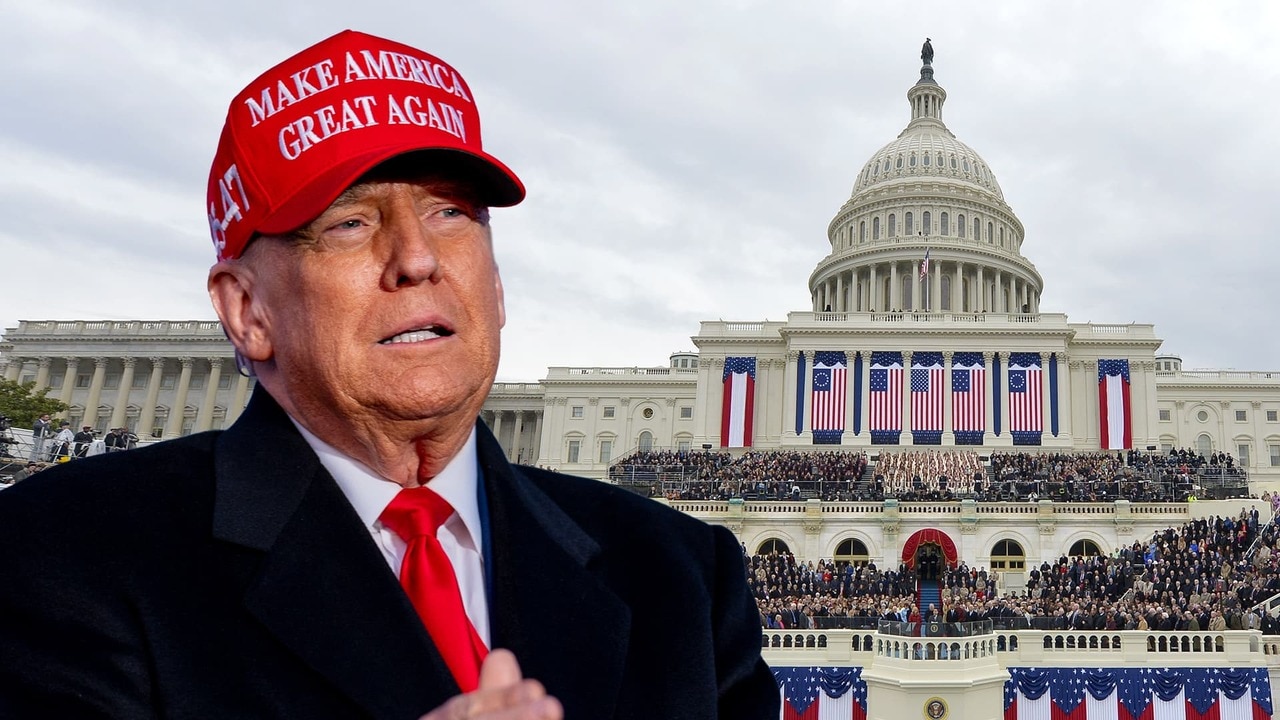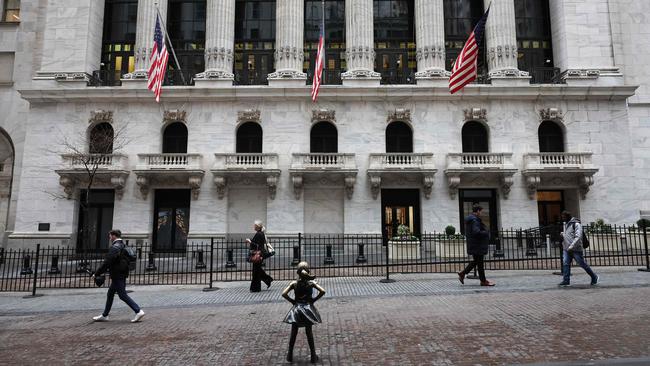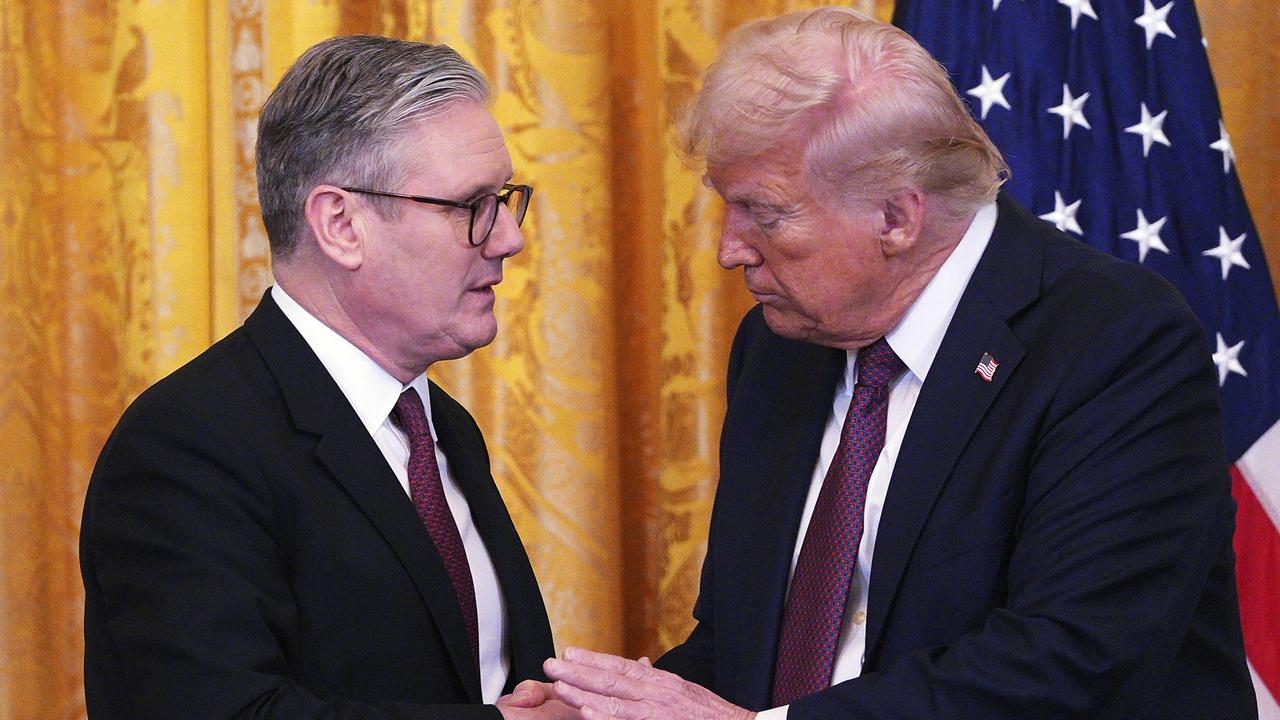UBS AM global head of investments Barry Gill sees better opportunities outside the US market
The stockmarket is currently taking a benign view of Donald Trump’s policies but it’s hard to see the US outperforming other markets again next year.

It was a good week for stocks with the Australian market setting record highs and the US market holding some of its post-election rise in what is normally its most bullish time of year.
Bitcoin remained a standout, nearing $US100,000 for the first time after surging 43 per cent since the election of Donald Trump. It’s hard to see anything but upside risk from his pro-crypto stance.
The US stockmarket has so far taken a benign view of the overall impact of Donald Trump’s policies.
However, it’s difficult to see the S&P 500 doing better than other markets again next year, according to the New York-based global head of investments at UBS Asset Management, Barry Gill.
Mr Gill oversees about $US1 trillion ($1.5 trillion) in assets under management for UBS AM.
His reasoning comes down to valuation. After rising 24 per cent in 2023 and 25 per cent so far in 2024, the US market is the most expensive in the world. With a 12-month forward PE multiple near 22 times versus a long-term average of 18 times, a single digit percentage gain in 2025 wouldn’t surprise.
With the PE multiple already elevated, expectations of interest rate cuts by the Federal Reserve receding and US Treasury bond yields starting to look attractive versus the earnings yield of the S&P 500, the onus will be on US corporate earnings to keep beating market expectations.
Of course the counterarguments are that the rest of the world doesn’t have any companies with the scale and expertise to compete with the “Magnificent 7” tech giants, and a whole swathe of smaller US companies could benefit from US fiscal stimulus and deregulation under Trump.
But despite the president-elect’s pro-business stance and “America first” mindset, there are many unknowns about the shape, timing and sequencing of his policies and their impact on financial markets.

Unfunded tax cuts, large and widespread tariffs and mass deportations could push up inflation, forcing the Fed to lift interest rates at a time when the market is expecting almost 1 percentage point of rate cuts over the next two years.
In dozens of client meetings during his three weeks of travel through the Asia-Pacific region to discuss the outlook for investment and asset allocation, Trump was the “number one thing that people want to talk about”, with geopolitical risks coming in a distant second, according to Mr Gill.
The Republican sweep of Congress has given hope for deregulation and lower tax rates that will ignite animal spirits and boost corporate earnings growth, but the US market is already the most expensive market globally and there are also risks.
Republican megadonor Ken Griffin, a hedge-fund titan and founder of Citadel, told students in the UK on Monday that he was “very anxious about the president’s willingness to engage in tariffs as a matter of trade policy,” Bloomberg reported.
Goldman Sachs has predicted a 10 per cent gain for the S&P 500 next year, driven primarily by strong earnings growth. But higher-than-anticipated inflation, and in turn higher rates, is one of the biggest risks to that forecast, said the US investment bank’s chief equity strategist, David Kostin.
“Why might we get higher inflation? It could be from immigration policy changes. It could be from tariffs. It could be from fiscal policy shifts. That’s one area we’re focusing a lot of attention on,” he said.
The S&P 500’s cyclically adjusted price/earnings ratio is currently around the 97th percentile based on data going back to 1930, according to Goldman Sachs.
“Out of all the major markets, the US market is the most expensive, and it’s the market that everybody has been allocated to,” Mr Gill said.
“So for it to continue to do well, you kind of need these types of things to materialise … you need evidence that there’s going to be pushback against regulation, evidence that tax cuts will happen.”
Trump wants to extend current tax cuts due to expire at the end of 2025 and cut the corporate tax rate from 21 per cent to 15 per cent for companies that make their products in the US.
The US Committee for a Responsible Federal Budget has estimated that this could reduce revenue by about $US200bn by 2035.

“We’re in this weird world where deficit spending, the budget deficit is at extreme levels for this time in the economic cycle and for peace time,” Mr Gill said. “And so if you want to get really bullish on the US, you have to believe that the deficit is going to come under control through the Department of Government Efficiency. That’s a big part of it.”
In a WSJ oped this week, DOGE co-heads Elon Musk and Vivek Ramaswamy spoke of “a drastic reduction in federal regulations” and “mass head-count reductions across the federal bureaucracy” and cutting at least $US500bn in annual federal spending.
“Using last year’s numbers, income to the US government was $US4.4 trillion, $US3.8 trillion of it was spent on mandatory stuff like Medicaid and Medicare Social Security … the private sector subsidises Medicare already, so I’m not sure how much you’re going to be able to squeeze out.
“And then you’ve got $US800bn in defence spending, $US400bn in interest expense, and a trillion dollars in what’s called discretionary spending, but it’s not really discretionary.
“So you have to believe that there is significant graft in the bidding process for winning contracts, and that that’s leading to a material amount of inefficiency. It’s possible.
“I guess, what I would say is conventional thinking was never going to solve the problem.
“The good thing about Musk is that he is an unconventional thinker.
“He’ll turn things upside down, I mean, figuratively, and figure out what the optimal is.
“But you have to believe he’s going to take a trillion dollars out to get us anywhere where we need to be. That would be unequivocally bullish. I’m not saying it will happen, but the thing that people in the markets have been most worried about is the unsustainable trajectory of the US budget deficit.”
Such a massive cut in government spending could help contain bond yields amid tax cuts.
On tariffs, Mr Gill is in the camp that says Trump will use these taxes as leverage for better trade outcomes from its allies, but not for China.
“But with respect to China, I suspect the tariffs will be strategic, because there’s way too much bipartisan support for the idea that China is a threat,” he said.
“But we already have seen this movie a little bit, because there were tariffs enacted against China back in 2017 under the Trump administration.
“You saw the chip embargo that came through in 2018 and all the stuff that went on against Huawei, and yet they haven’t been able to kill the Chinese economy.
“All that’s happened is that they have forced China to think about self-reliance and self-sufficiency, in a way that might not have otherwise happened. And so that’s that transition that’s taking place in the Chinese economy, from building all the infrastructure to trying to take a leadership position in manufacturing and technology.
“And there’s lots of evidence that they’re making very significant headway in that.”






To join the conversation, please log in. Don't have an account? Register
Join the conversation, you are commenting as Logout